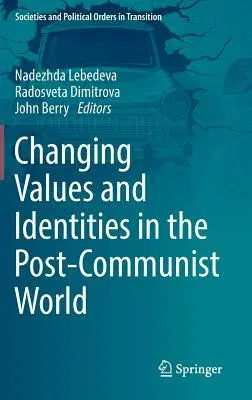Changing Values and Identities in the Post-Communist World (2018)Hardcover - 2018, 12 April 2018

Qty
1
Turbo
Ships in 2 - 3 days
In Stock
Free Delivery
Cash on Delivery
15 Days
Free Returns
Secure Checkout

Part of Series
Societies and Political Orders in Transition
Print Length
434 pages
Language
English
Publisher
Springer
Date Published
12 Apr 2018
ISBN-10
3319726153
ISBN-13
9783319726151
Description
Product Details
Book Edition:
2018
Book Format:
Hardcover
Country of Origin:
NL
Date Published:
12 April 2018
Dimensions:
23.39 x
15.6 x
2.54 cm
Genre:
Russian
ISBN-10:
3319726153
ISBN-13:
9783319726151
Language:
English
Location:
Cham
Pages:
434
Publisher:
Weight:
793.79 gm